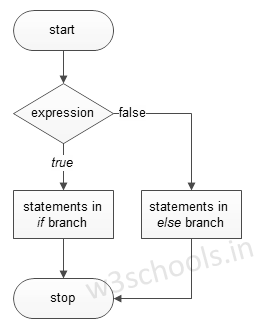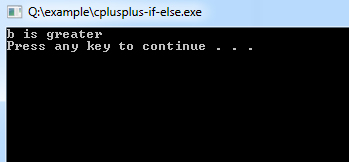C++ if-else Statements control the flow of the program based on conditions. If the expression evaluates to true, it executes certain statements within the if block; Otherwise, it executes statements within the else code block. This tutorial will teach you how to use if-else Statements in C++.
The basic format of if-else Statement is:
Syntax:
if(test_expression)
{
//execute your code
}
else
{
//execute your code
}Figure - Flowchart of if-else Statement:

Example of a C++ program to demonstrate an if-else Statement:
Example:
#include <iostream>
using namespace std;
int main()
{
int a = 15, b = 20;
if (b > a) {
cout << "b is greater" << endl;
} else {
cout << "a is greater" << endl;
}
system("PAUSE");
}Program Output:

Example:
#include <iostream>
using namespace std;
int main()
{
char name;
int password;
cout << "Enter the name: "; cin >> name;
cout << " Enter your password: "; cin >> password;
if (name == 'GG') {
if (password == 1346) {
cout << "Login successful";
}
else {
cout << "Incorrect PASSWORD, Try again.";
}
}
else {
cout << " Incorrect Login Details, Try again.";
}
}Program Output:
Enter the name: GG Enter your password: 1346 Login successful